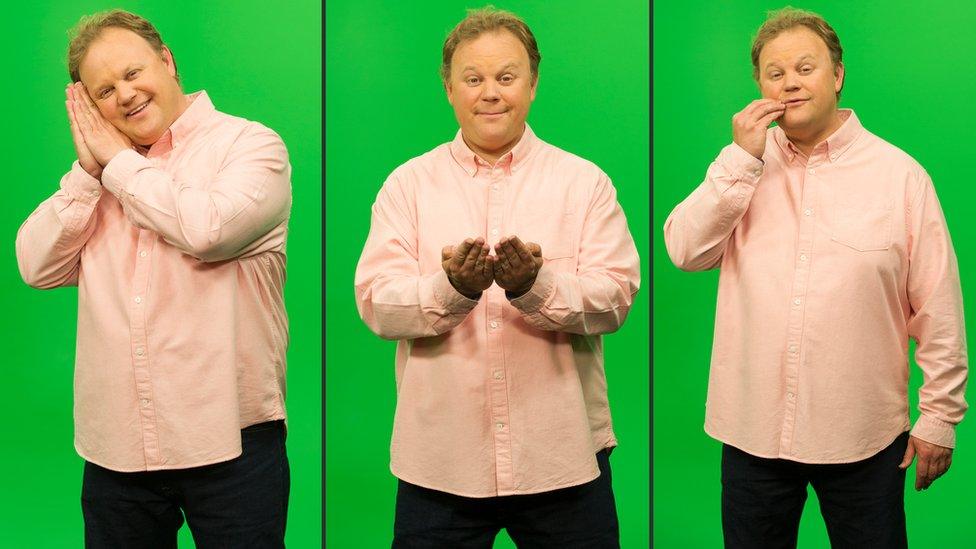What are the Special Olympics 2019?
- Published
- comments
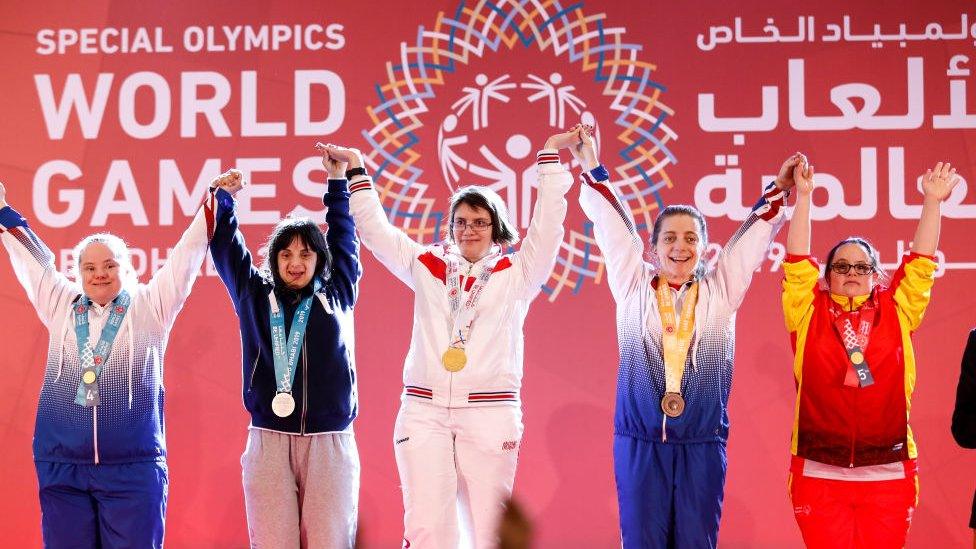
Athletes celebrate receiving their medals during the 2019 Special Olympics World Games in Abu Dhabi
We're midway through the Special Olympics 2019, which are happening in Abu Dhabi - the capital of the United Arab Emirates.
These will be the first Special Olympics World Games in the Middle East/North Africa region.
The athletes compete across more than 30 individual and team sports.
What are the Special Olympics?
The Special Olympics was founded in 1968. It's a sporting competition for people with intellectual disabilities, and was started by a woman called Eunice Shriver.
Eunice's sister, Rosemary, had an intellectual disability and Eunice thought there weren't enough sporting opportunities for people like her sister.
She wanted to make a change, so she invited people with intellectual disabilities to a summer day camp in her back garden in Maryland, USA.
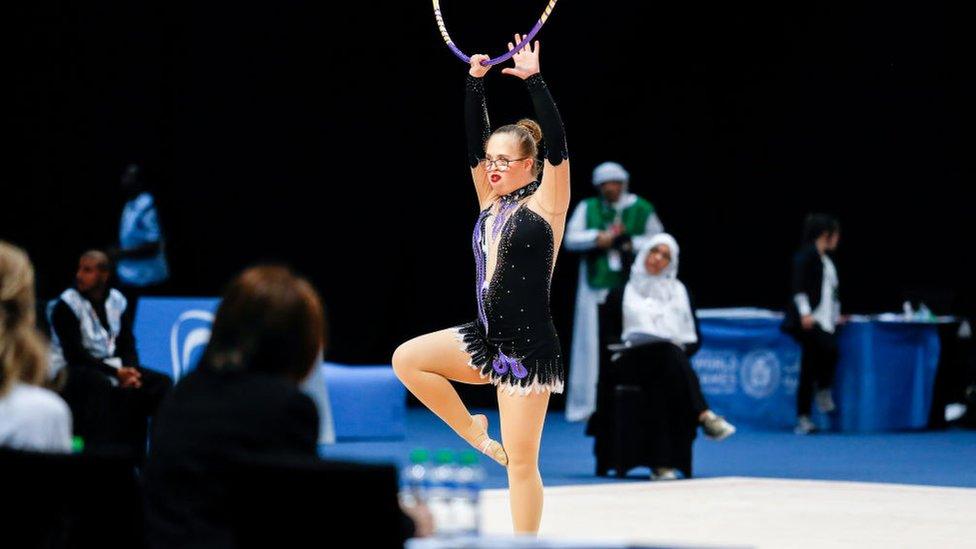
Athlete from Norway performs a Rhythmic Gymnastics routine
The games have grown since then and the event celebrated its 50th anniversary last year.
Over five million athletes have competed in the Special Olympics over its history, coming from over 170 countries!
Athletes compete in well-known sports, like gymnastics, cycling and athletics but some of the sports are more uncommon, such as floorball and snowshoeing.
The mission of Special Olympics is to provide year-round sports training and athletic competition in a variety of Olympic-type sports for children and adults with intellectual disabilities
What is an intellectual disability?
There are as many as 200 million people with intellectual disabilities around the world.
Intellectual disability can be caused by injury, disease, or a problem in the brain.
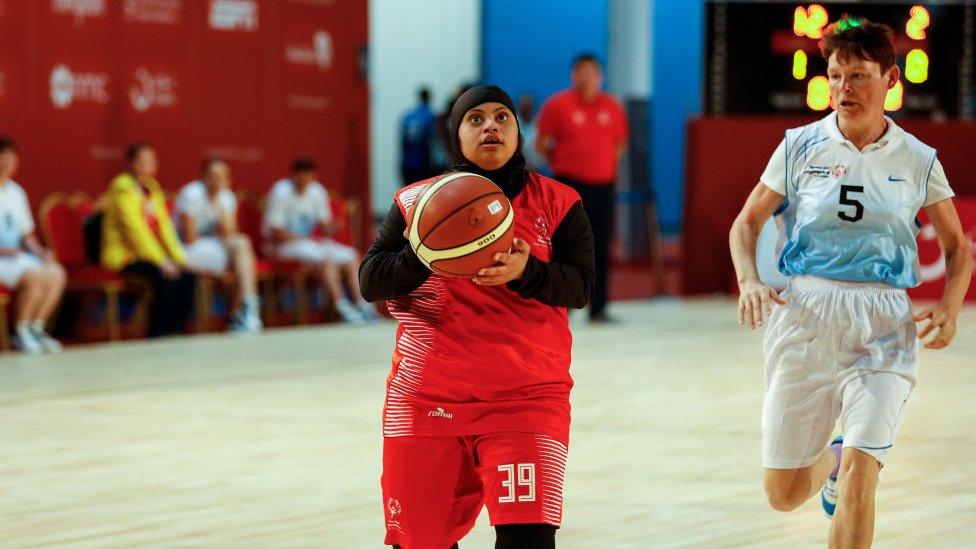
UAE basketball team plays against Kazakhstan during Special Olympics World Games in Abu Dhabi
Having an intellectual disability means that there are certain limitations in how someone's brain works, which can sometimes affect how they communicate.
These limitations can cause a child to develop and learn in a different way to other children.
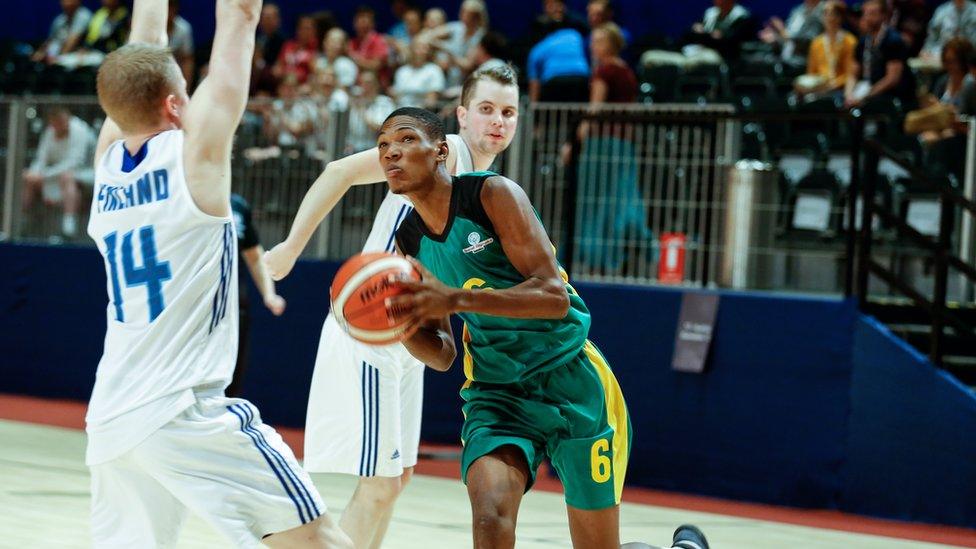
Jamaican basketball team plays against Finland
Examples of intellectual disability include Down's Syndrome, which is a genetic condition that can affect a child's learning and physical features.
Other examples include Autism, Fragile X syndrome, Apert Syndrome, Williams Syndrome and Cerebral Palsy.
- Published1 April 2021

- Published21 March 2024
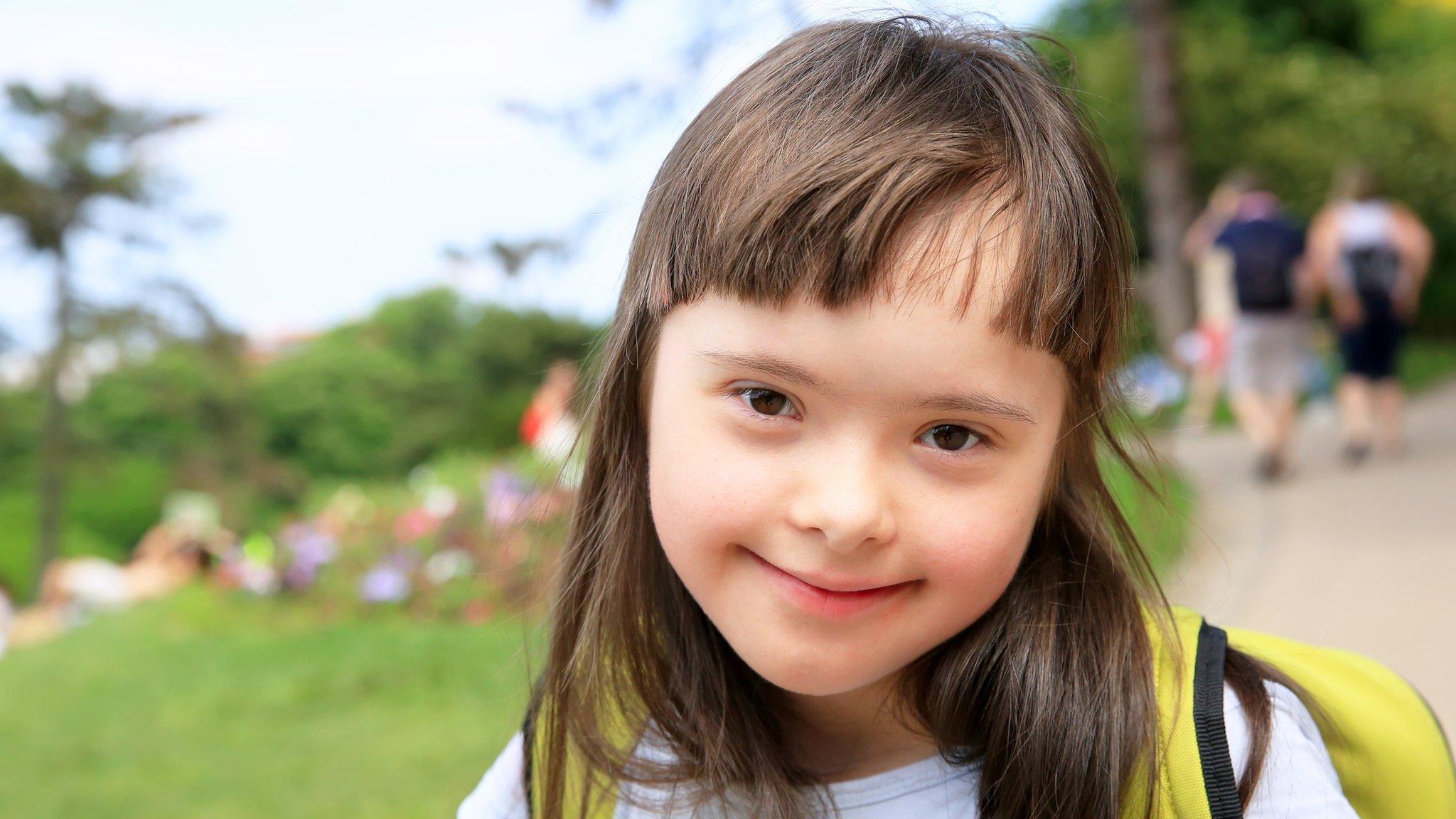
- Published6 March 2019
